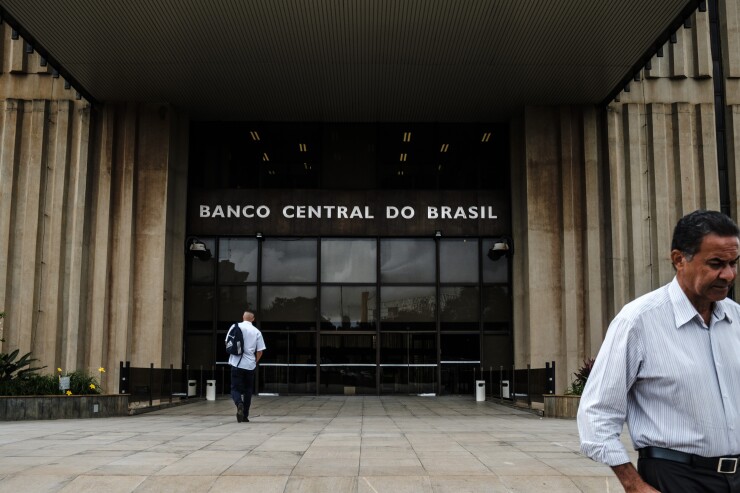Brazil is the latest Latin American country to establish plans for a low-cost instant payments network with the aim of increasing financial inclusion and eliminating cash from the economy.
Banco Central do Brasil (BCB) has decided to implement its real-time system in 2020, a year early. Originally, the central bank planned to start implementing the system next year with rollout in 2021. BCB president Roberto Campos Neto said that developing a real-time 24/7 system is a priority.
BCB already operates near-real-time interbank transfer systems, but they are only available during banking hours. Around 55 million Brazilian adults are unbanked, and although 71% of Brazilians have smartphones, NFC-based mobile payments aren’t widespread in Brazil yet.

The real-time system will be opened up to non-bank participants such as fintechs and payments institutions. Under BCB’s existing regulations, authorized non-bank payment institutions are allowed to offer e-money accounts and mobile payment services, including digital wallets, to low-income Brazilian consumers.
The new system will potentially displace not just cash and cards but also boleto bancário, a barcoded bank transfer slip that can be settled at payment points such as convenience stores or bank branches. Around a quarter of all Brazilian online purchases are paid via boleto bancário, which is very popular among unbanked consumers or people without credit cards.
“The availability of QR code-based instant payments will offer a better solution for billing/invoicing and payment reconciliation for billers,” said payments industry expert Francesco Burelli. “This will be a significant step forward in terms of payment efficiency and represent a threat to incumbent payment providers’ very profitable businesses.”
Intended to reduce Brazilians’ heavy reliance on cash and to facilitate mobile payment adoption, the real-time platform will offer P2P, P2B, B2B, and salary payments plus government payments such as taxes.
BCB proposes to mandate the introduction of open banking to reduce entry barriers and increase competition in financial services. The Brazilian banking market is currently dominated by five large banks, which, according to
The rules, expected to be implemented in the second half of 2020 following a consultation process, will require banks to share customers’ banking data with non-banks, subject to customer consent. Approved non-bank payments institutions will be able to initiate payments from customers’ bank accounts and e-money accounts.
Incumbent players such as banks and Brazil’s two largest acquirers — Cielo and Rede — are already responding to the prospect of losing market share to new entrants. Cielo and Rede, which are closely affiliated with the big banks, are cutting their fees and introducing faster settlement.
In Q3 2019, Brazil’s largest bank, Itaú Unibanco, plans to launch Iti, an instant payments platform that uses QR codes and doesn’t need card readers,
Brazilian retailers see an opportunity to cut their card acceptance costs by embracing BCB’s instant platform. “Large retailers are looking at the opportunities provided by the opening up of the payments industry through payment initiation licenses under open banking regulations,” said Burelli.
But if there are delays in introducing open banking, this could work to the benefit of incumbent players.
“Without open banking, the provision of QR code-based solutions may only be available through incumbent licensed payment providers, which would prevent competition from new entrants such as large retailers wanting to operate their own payments acceptance systems,” said Burelli.
BCB has been working with stakeholders to develop standards and regulations for the new real-time system. It will provide centralized settlement for the system, based on its existing real-time gross settlement infrastructure.
Brazil's use of QR codes follows the example of





